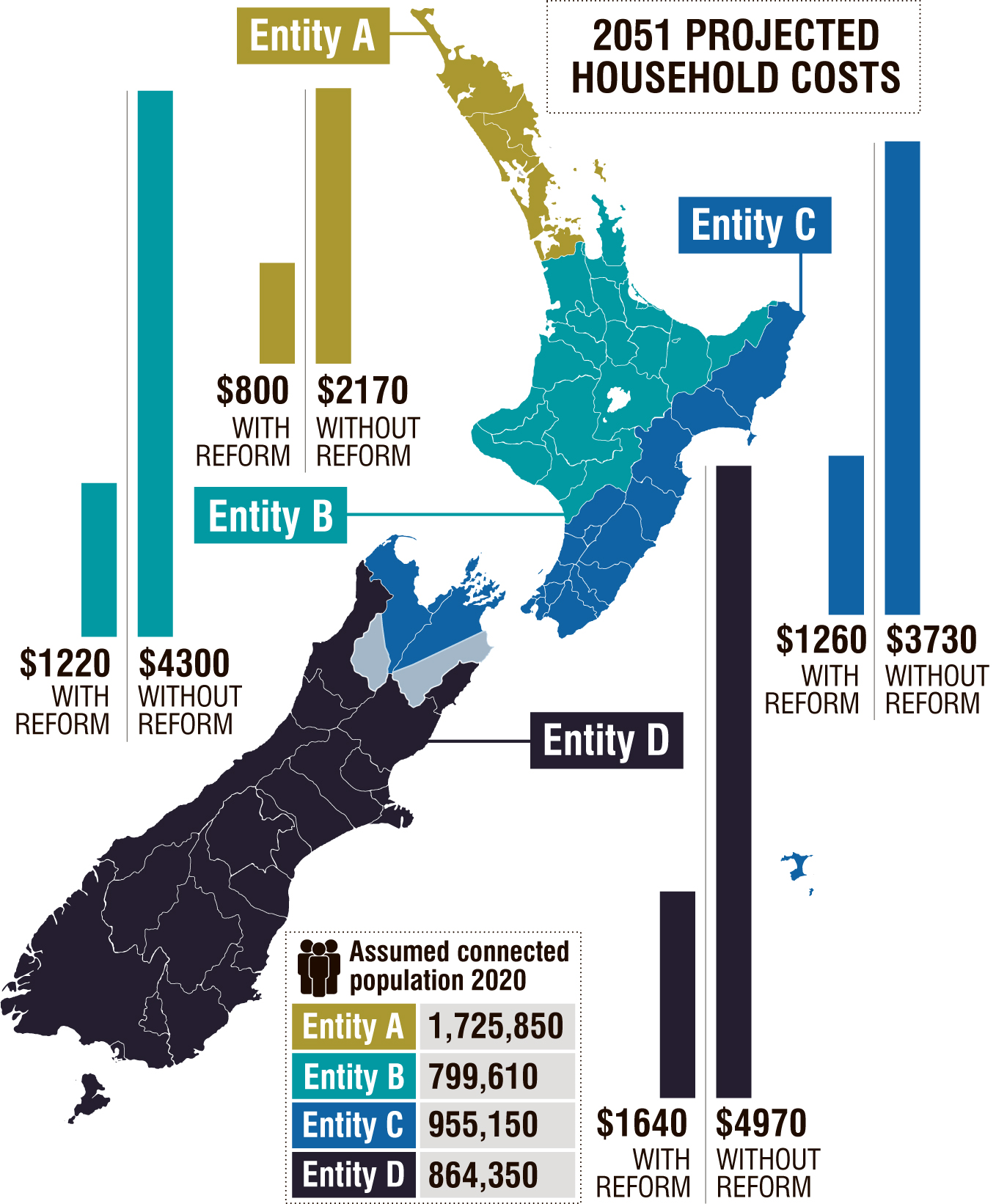
It is part of a $2.5 billion package announced on Thursday by Prime Minister Jacinda Ardern for the country’s 67 councils if they opted in to the reforms.
More than $160 million has also been earmarked for southern councils.
- Central Otago - $12,835,059
- Clutha - $13,091,148
- Dunedin - $46,171,585
- Gore - $9,153,141
- Invercargill - $23,112,322
- Queenstown Lakes - $16,125,708
- Southland - $19,212,526
- Waimate - $9,680,575
- Waitaki - $14,837,062
- Total: $164,219,126
The Government unveiled its proposed water reforms last month whereby four multi-region water providers would take control of New Zealand’s wastewater, stormwater, and drinking water systems, ending the roles of the councils.
Today, Prime Minister Jacinda Ardern said the reforms were designed to benefit New Zealanders no matter where they were in the country.
Christchurch Mayor Lianne Dalziel said last month that it was still too soon to say if the reforms were in Christchurch’s best interests.
The support package is designed to make sure no council was worse off despite the change to their asset base.
To ensure that, $500 million of the $2.5 billion support package would be used to help councils transition into new roles, as local government bodies that no longer provided water services for ratepayers.
The remaining $2 billion was compensation for the loss of assets from councils’ books and to ‘‘invest in the future", Ms Ardern said.
“New Zealand’s water systems are facing a significant crisis and will continue to do so without major transformation,’’ she said.

Local Government Minister Nanaia Mahuta acknowledged the significant pressure all councils faced with considerable change on the way.
But she said the reforms offered an opportunity for Government and local councils to work together to ensure the reforms were fit for purpose.
The Government signed a commitment to work with LGNZ to engage and consult with councils and other stakeholders over the next six to eight weeks.
“The reforms are about acting for the greater good, with significant benefits to all communities. But they will have the best chance of success if all councils participate," Ms Mahuta said.
"We are working with the sector to ensure everyone understands the reform-related information, and to explain the policy proposals, the benefits of reform, and the details of the support package.
“All of our water assets will be retained in local ownership; that has been a bottom line for us."
There was a public referendum provision to provide the ultimate protection against privatisation.
There would also be mechanisms to ensure a strong community say in how the assets and services are run and how planning will be managed.
The $500 million component of the support package sought to address the costs and financial impacts that councils would incur such as the transfer of water assets, liabilities, revenue and staff to a new water services entity.
The funding also ensured councils would be able to continue to sustainably perform their non-water related roles and functions.
The larger portion of the support package, which comprises $1 billion Crown funding and $1 billion from the new water services entities was allocated to councils on the basis of a nationally consistent formula, based on population, relative deprivation and land area, she said.
The funding package announced today comes on top of the $761 million committed to the reform programme in 2020, and $296 million announced in Budget 2021 for the costs involved with the establishment and transition of the new water entities.
Across New Zealand an up to $185 billion investment over the next 30 years is expected to be required to maintain, replace and upgrade ageing assets, and to provide for growth, she said.
The reforms would grow GDP by $14 billion to $23 billion over the next 30 years and create an estimated 6000 to 9000 jobs, Ms Mahuta said.
Meanwhile, Leader of the Opposition Judith Collins called the support package a bribe for councils to accept reforms that would result in "low accountability, bloated service entities, more bureaucracy, and messy cross-subsidising between neighbouring regions".
“National has been vocal in proposing central government investment in council infrastructure, however, our approach would be to tie this to requirements for councils to build housing," she said.
“The Government has simply created a slush fund to buy compliance from local governments.













